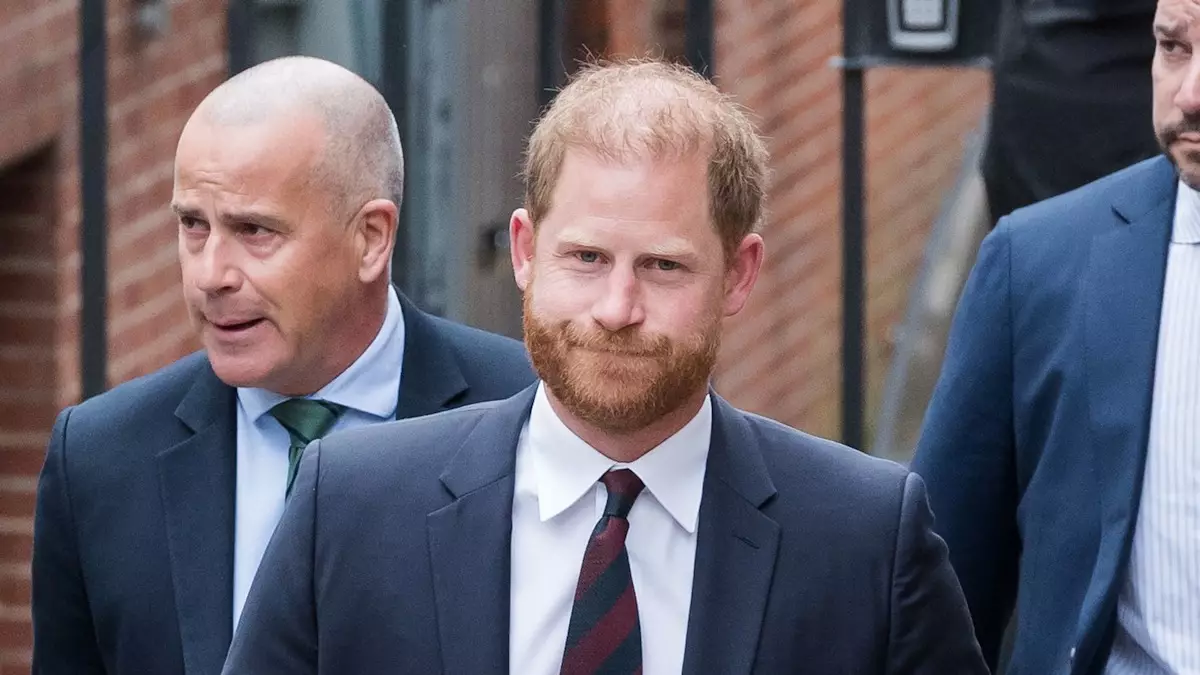In a recent speech at the prominent Bitcoin Conference in Las Vegas, British politician Nigel Farage decided to inject some humor into his political discourse by taking a jibe at Prince Harry. In a world where political figures often resort to rich rhetoric to make a point, Farage’s tongue-in-cheek comments about the Duke of Sussex not only drew genuine laughter from the audience but highlighted an emerging dynamic of public life where royals are game for political banter. Farage’s declaration that the UK was sending “woke” culture back to the US in exchange for Prince Harry is less a critique of the man himself than a commentary on how the British political landscape is increasingly comfortable with using royal names for comedic exploits.
The Context of Laughter
Farage’s remark came at a time when public interest in the Sussexes remains high, fueled by their recent ventures into mental health discussions and other charitable endeavors. The contrast between the seriousness of Farage’s political message—regarding cryptocurrency adoption—and the levity of his attack on Harry speaks volumes about the disjunction in today’s society. While the announcement of cryptocurrency donations could symbolize a forward-thinking political move, the accompanying taunt at Harry reveals an undercurrent of disdain for royalty in some segments of British politics. The laughter that ensued is an indication of how comfortably the audience aligns with poking fun at an icon who, for many, represents an outdated institution.
The Suspects of Scrutiny
Harry, who has not shied away from expressing his enthusiasm for life in America, illustrates the evolving perception of the monarchy’s relevance in contemporary culture. His choice to move to California with Meghan Markle has increasingly drawn the ire of certain political figures who prefer a more traditional view of the monarchy. By leveraging humor to attack Harry, Farage is tapping into a widespread feeling among certain demographics that resonate with a more populist, anti-royal sentiment. The exchange underscores how royals, especially those who choose to step away from royal obligations, can become fodder for political gamesmanship.
Duality of Life and Public Image
Harry’s comments about enjoying life in America and reveling in the opportunity to raise his children in a way that reflects his late mother’s aspirations raise contradictions against the backdrop of public ridicule. On one hand, he seems fulfilled in his new life, whereas, on the other, he exists as a subject of mockery. Farage’s barb reflects not just a personal critique of Harry but a larger commentary on the perceived failure of the British elite to modernize their image. The presentation of Harry as diplomatic currency in political jest emphasizes the struggle between individual agency and public identity—a struggle that is incredibly relatable in our times.
The Ongoing Saga of the Sussexes
Despite Harry’s detachment from royal responsibilities, his narrative continues to captivate audiences across the globe. His relationship with his family remains a topic ripe for speculation, and every jab thrown at him serves to keep that narrative alive. Farage’s joke arguably brings to light the yearning among some for the grandiosity of royal traditions juxtaposed with the uncomfortable reality of a monarchy expected to adapt to modern values. The paradox lies in the applause given to the two-dimensional portrayal of the Sussexes as they navigate not just their personal lives but the expectations of a society that feels torn between reverence for tradition and the call for authenticity.
In a world where humor often transcends boundaries, the blending of political commentary with references to royal figures provides fertile ground for debate and discussion. As Farage’s quips hold a mirror to contemporary society—a society grappling with what it means to be both modern and traditional—the public’s oscillation between adoration and ridicule for figures like Harry encapsulates the zeitgeist of our time. These moments of levity mask deeper societal reflections, exposing the complexities of identity, relevance, and the perennial tug-of-war between the old guard and the new societal norms. While Prince Harry might be an easy subject for such political banter, it also serves as a reminder of the ever-evolving landscape of public figures who must navigate the intersecting realms of celebrity culture and serious discourse.

Leave a Reply